About
- Purpose and Duties
- Current Committee Members
- Past Committee Members
- Recommended Code of Conduct
- Incident report submission procedure and LDIC Incident Response Workflow
Purpose and Duties
The Lattice Diversity and Inclusion Committee (LDIC) is a standing committee of the International Symposium of Lattice Field Theory series charged with improving the intellectual and social climate at the Lattice conference and more broadly within our field, responding to issues of harassment and misconduct at the conference, and promoting a welcoming atmosphere, diversity and inclusion in our field.
This committee’s functions include advising the LOCs and IACs for the Lattice conference series on issues related to all aspects of diversity (including but not limited to gender, ethnicity, and sexual orientation), acceptable and unacceptable conduct. In consultation with the IAC and LOC, the LDIC maintains a Code of Conduct to be agreed to by all participants during registration for each instance of the Lattice conference series, and later produces surveys and reports on the state of the climate at the lattice conferences and future possible efforts to improve it. The LDIC also produces surveys and reports on diversity and inclusion efforts in the field as a whole, periodically presenting these results to the lattice community. In coordination with the LOC, the LDIC receives, reviews and responds to reports of unprofessional conduct and harassment at the Lattice conference and in the lattice community, maintaining records of these incidents. Our policies for dealing with such reports are outlined below, and in our incident response document.
This committee was formed in 2018 with ten members who are representative of the field. Whenever possible, the committee membership shall satisfy the following constraints:
- Minimum of 3 male and 3 female members,
- Minimum of 2 members from each from the 3 geographic regions (Europe and the Mediterranean; the Americas; Asia/Oceania),
- Minimum of 1 member each at the rank of Assistant Professor or equivalent, postdoc level, and graduate student level,
- At least 1 member of an underrepresented ethnic group (non-white/caucasian).
Current Committee Members
-
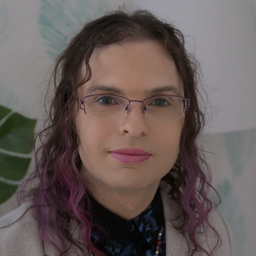
Finn M. Stokes (they/them)
chair | 2022–nowPostdoc at UofA, Australia
finn.stokes@adelaide.edu.auFinn completed their PhD at the University of Adelaide in Australia in 2018. They are currently employed as a Ramsay Fellow at the University of Adelaide in Australia. They have a history of involvement with LGBTQIA+ advocacy groups, and have extensive experience with designing and enforcing codes of conduct.
-
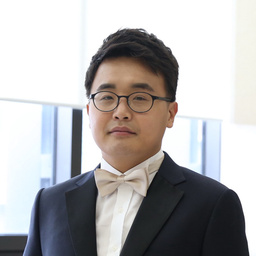
Benjamin Jaedon Choi (he/him)
co-chair | 2025–nowPostdoc at CCS, Uni. Tsukuba, Japan
benchoi@het.ph.tsukuba.ac.jpBenjamin is a postdoc at the Center for Computational Sciences, University of Tsukuba, Japan. He completed his master’s and PhD degrees at the University of Tsukuba and Seoul National University, respectively. Born with congenital hearing loss, he has worn hearing aids since childhood and occasionally faces communication difficulties. His interest in singing grew out of these experiences. He wanted to challenge himself and prove that he could do it despite his disability, and he also felt that music could serve as a form of focused listening training. As a result, he enjoys singing opera arias and German Lieder as a hobby, and is married to a professional classical soprano. As a member of the LDIC, he aims to support not only those with visible disabilities but also individuals with hidden physical challenges, helping to make academic activities more accessible and inclusive for everyone. — Website | Mirror
-
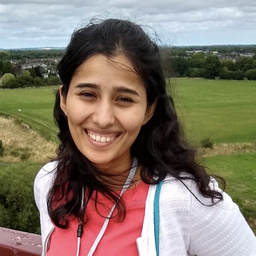
Archana Radhakrishnan (she/her)
2025–nowPostdoc at TIFR, India
arcradhakrishnan07@gmail.comArchana is a postdoc at the Tata Institute of Fundamental Research in India, with long-standing involvement in diversity, equity, and inclusion efforts throughout her academic career. She has served as a DEI mentor for incoming physics graduate students, helped secure APS funding to establish a Women in STEM chapter, contributed to the DEI Board at William & Mary, and supported female students through the Vigyan Vidushi program at TIFR. Motivated by the need to ensure that all voices—especially those from underrepresented backgrounds—are heard and respected, she hopes to contribute to the LDIC by expanding mentorship opportunities and promoting training on unconscious bias, inclusive communication, and micro-aggressions, helping foster a supportive and equitable environment across the lattice community.
-
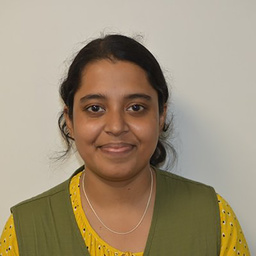
Bhavna Prasad (she/her)
2025–nowPhD Student at the Cyprus Institute, Cyprus
b.prasad@cyi.ac.cyBhavna is a PhD student at The Cyprus Institute whose path in lattice QCD has been shaped by strong mentorship and a supportive research environment that helped her grow from a shy student into a confident researcher. Her experiences have shown her how inclusion fosters both individual development and scientific progress, and they motivate her desire to support others—especially those who may feel alienated or unheard. Bhavna has been active in outreach and community building, from coordinating her undergraduate Physics Club and organizing public lectures and exhibitions, to participating in events like Science is Wonderful in Belgium and the sCYence Fair in Cyprus. She has also engaged with global discussions on gender equity through the International Conference on Women in Physics. Through the LDIC, she hopes to serve as an approachable peer contact, helping to create welcoming spaces, promote open dialogue, and strengthen a sense of belonging across the lattice community.
-

Chris Monahan (he/him)
2025–nowAssist. Prof. at Colorado College, USA
cjmonahan@coloradocollege.eduChris is currently an assistant professor at Colorado College whose work is deeply rooted in anti-racism, diversity, equity, and inclusion. He has led and contributed to numerous ADEI initiatives across multiple institutions, including co-founding the Mentoring for Careers in Physics program at William & Mary, participating in SafeZone allyship efforts, and helping guide anti-racist programming and advocacy work at Colorado College. His teaching also incorporates these values, such as through a new course exploring nuclear physics within its historical and cultural context in the American Southwest, with particular attention to Indigenous perspectives. Through the LDIC, he hopes to support early-career researchers, strengthen inclusive mentoring structures, and help broaden access to lattice field theory—especially for students from underrepresented backgrounds.
-
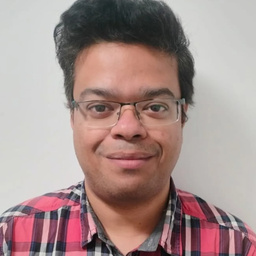
Debasish Banerjee (he/him)
2025–nowAssoc. Prof. at Uni. Southampton, UK
D.Banerjee@soton.ac.ukDebasish is currently an associate professor at the University of Southampton and is committed to fostering equity, diversity, and inclusion across the global lattice community. Having lived and worked in India and Western Europe, he remains particularly attentive to the challenges faced by underrepresented groups—including the LGBTQIA+ community—in academic and professional settings. Through the LDIC, he hopes to help sustain a space where diverse perspectives are heard and valued, promote a stronger sense of belonging, and learn from colleagues engaged in similar EDI work. He is also interested in amplifying the experiences of less privileged members of the field, proposing initiatives such as community testimonies to highlight the barriers they have overcome and to increase awareness and understanding across the lattice community.
-
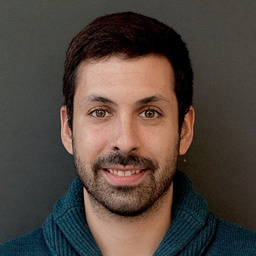
Fernando Romero-López (he/him)
2023–nowAssist. Prof. at Uni. Bern, Switzerland
fernando.romero-lopez@unibe.chFernando is currently an assistant professor at the ITP at the University of Bern. Before that, he completed a postdoc at MIT, preceded by his master’s and PhD studies in Bonn, Germany and Valencia, Spain, respectively. As a member of this committee, he seeks to actively participate in shaping policies, standards, and initiatives that promote inclusivity for everyone in the lattice QCD community, regardless of their identity, gender, race, or LGBTQIA+ status.
-
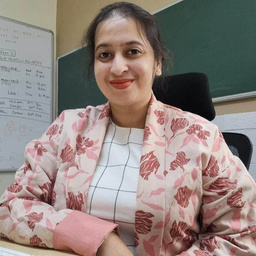
Indrakshi Raychowdhury (she/her)
2023–nowAssist. Prof. at BITS-P., India
indrakshir@goa.bits-pilani.ac.inIndrakshi completed her PhD at the University of Calcutta, India in 2014 and worked as a postdoctoral researcher at various institutes in India, Europe, and the USA before joining as a faculty at the BITS-Pilani in its Goa campus in 2021. Indrakshi has been advocating for gender equity throughout her career and continues to practice the same along with raising awareness for mental health issues and practicing inclusion of persons with disabilities.
-
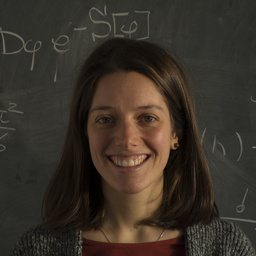
Marianna Sorba (she/her)
2025–nowPostdoc at ETH Zurich, Switzerland
marianna.sorba@hotmail.itMarianna is a postdoc at ETH Zurich. As a woman in physics and a young mother, she has spent much of her academic career within minority groups in the scientific community, experiences that motivate her commitment to building more welcoming and supportive environments. She previously volunteered as a children’s teacher for a non-profit organization in Africa, an experience that strengthened her interest in inclusion and community engagement. Through the LDIC, she hopes to contribute to fostering a positive and accessible atmosphere at Lattice conferences—including online events—and to help maintain a transparent, community-supported code of conduct that promotes respectful and equitable participation for all.
-
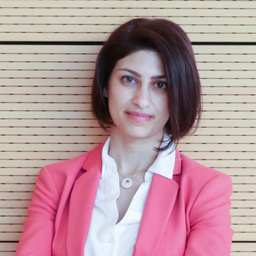
Martha Constantinou (she/her)
2023–nowAssoc. Prof. at Temple Uni., USA
marthac@temple.eduMartha is an associate professor at Temple University, where she was awarded the Selma Lee Bloch Brown Professorship for her contributions to research and service to the community. She has served as the Diversity Equity and Inclusion (DEI) coordinator for scientific meetings and has participated in several DEI panels as an invited speaker. She has also been involved in outreach activities with the purpose of enhancing diversity in STEM.
-
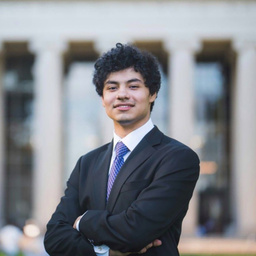
Octavio Vega (he/him)
2025–nowPhD Student at UIUC, USA
octavio5@illinois.eduOctavio is a PhD student at the University of Illinois Urbana–Champaign whose academic path has been shaped by the support and mentorship he found within the lattice field theory community. Motivated by a desire to expand participation in LQFT, he hopes to bring younger perspectives to the LDIC and help make the field more accessible, transparent, and welcoming. His prior experience includes mentoring undergraduates at MIT—particularly students from underrepresented backgrounds—and serving as a Sloan UCEM fellow at UIUC, where he participates in outreach events for incoming STEM students. Through the LDIC, he aims to strengthen connections across career stages and help develop community-driven resources that encourage new students, especially those for whom equity and inclusion are central concerns, to enter and contribute to lattice field theory.
-
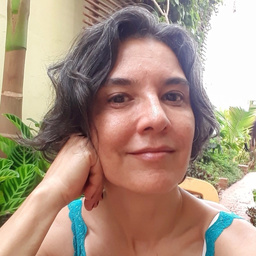
Tereza Mendes (she/her)
2022–nowAssoc. Prof. at University of São Paulo, Brazil
mendes@ifsc.usp.brTereza got her PhD from NYU in 1996 and is currently an Associate Professor at the University of São Paulo, having previously held postdoc positions at Rome “Tor Vergata” and Bielefeld, as well as visiting positions at DESY-Zeuthen and LPT Orsay. Her involvement with gender-inequality & diversity issues (e.g. promoting the creation of a female student organization at her institute) is relatively recent, but heartfelt.
Past Committee Members
-
Antonin Portelli (he/him)
2023–2025Professor at Uni. Edinburgh, Scotland, UK
-
Bipasha Chakraborty (she/her)
2022–2025Assoc. Prof. at Uni. Southampton, UK
-
Christopher A. Aubin (he/him)
2019–2023Assoc. Prof. at Fordham University, USA
-
Gunnar Bali (he/him)
2019–2022Professor at Uni. Regensburg, Germany
-
Huey-Wen Lin (she/her)
2019–2022Professor at Michigan State University, USA
-
Liuming Liu (she/her)
2019–2023Research Scientist at IMP, CAS, China
-
Luigi Del Debbio (he/him)
2019–2023Professor at Uni. Edinburgh, Scotland, UK
-
Nilmani Mathur (he/him)
2022–2025Professor at TIFR, India
-
Sinéad Ryan (she/her)
2019–2022Professor at Trinity College, Dublin, Ireland
-
Sofie Martins (she/her)
2022–2025Postdoc at Uni. Graz, Austria
-
Sophie Hollitt (they/them)
2019–2022Postdoc at TU Dortmund, Germany
-
Vera Gülpers (she/her)
2019–2022Lecturer at Uni. Edinburgh, Scotland, UK
-
Will Detmold (he/him)
2019–2023Professor at MIT, USA
Recommended Code of Conduct
The LOC of a particular conference ultimately sets the code of conduct for their event, but the LDIC recommends the following code of conduct for any conference in the field (also available as a pdf):
The organizers are committed to making this conference productive and enjoyable for everyone. Creating a supportive professional environment where open and frank discussion of ideas can take place, where everyone is treated with courtesy and respect, and in which diversity and inclusion are valued is the responsibility of all the participants. We will not tolerate harassment of attendees or others involved in the conference in any form. For the entire duration of the lattice conference and in other professional interactions with colleagues you agree to follow these guidelines:
- Behave professionally in personal interactions at the conference venue, excursion, banquet, and all other conference events as well as in any other form of communication including social media and in online conference environments. Harassment and sexist, racist, or exclusionary comments or jokes are not appropriate. Harassment includes sustained disruption of talks or other events, inappropriate physical contact, sexual attention or innuendo, deliberate intimidation, stalking, and photography or recording of an individual without consent. It also includes, but is not limited to, offensive comments related to gender identity, sexual orientation, disability, physical appearance, body size, race, nationality, or the religion or non-religion of participants.
- Be kind to others. Do not insult or put down attendees or other individuals associated with the conference. Scientific discussion and criticism is vital and should be conducted in this spirit.
- All communication should be appropriate for a professional audience including people of many different backgrounds.
- If participants wish to record online talks or share photos of a speaker on social media, we strongly recommend that they first obtain the speaker’s permission. Participants may share the contents of talks/slides via social media unless speakers have asked that specific details/slides should not be shared. Should a participant be asked to stop any inappropriate behavior, they are expected to comply immediately. In serious cases, they may be asked to leave the conference at the sole discretion of the organizers without a refund of the conference fee. They may also be banned from participation at future conferences.
Should a participant witness events of bullying, harassment or aggression, we recommend that they approach the affected person and show support. The witness may also suggest that the inappropriate behavior be reported and offer to facilitate that reporting if requested. Participants can report any violation of these guidelines to any member of the Lattice Diversity and Inclusion Committee or to the conference co-chairs. Such reports will be treated confidentially.
Thank you for helping to make the Lattice Field Theory community welcoming to all.
Acknowledgements: This code of conduct was adapted from the London Code of Conduct (by A. Pontzen and H. Peiris), which was derived from original Creative Commons documents by PyCon and Geek Feminism. It is released under a CC-Zero licence for reuse. To help track people’s improvements and best practice, please retain this acknowledgement, and log your re-use or modification of this policy at https://github.com/apontzen/london_cc.
Incident report submission procedure and LDIC Incident Response Workflow
If a participant in a given event (conference, workshop, …) believes that they have experienced an incident that violates the LDIC Code of Conduct, they can communicate this to any LDIC member. For any further action from LDIC, the incident needs to be reported to the LDIC (to any member; emails given above) via the Incident Report Form. The report will then be processed according to the workflow below.
The LDIC will, as much as possible, coordinate with the LOC of a given event. However, the LDIC is an independent advisory entity, and participants should not hesitate to report incidents if they feel it is justified, even when there is no visible, active coordination between the LOC and the LDIC.
-
Report
An Incident Report Form must be filled by the reporting party or a member of the LDIC, with the considerations below:
- The reporting party might have warned the LDIC differently than filling out the form. If appropriate, the LDIC contact can assist the reporting party in filling out the form.
- The reporting party decides the level of anonymity of the report. They can determine that only a specific point of contact or specific points of contact in the LDIC can access the full report. If this occurs, the LDIC point(s) of contact should agree with the reporting party on an appropriately redacted version to circulate to the Committee. The reporting party does not have to justify why they want the report redacted.
- The report is submitted to the LDIC chair, and the reporting party can and should specify if they believe that LDIC or LOC members are conflicted with the report. If the LDIC chair is considered to be conflicted, the deputy chair will manage the report. If the deputy chair or more than 50% of the LDIC is considered to be conflicted, the LDIC will propose to the reporting party to escalate directly with the LOC.
- The LDIC always guarantees the reporting party’s anonymity. Personally Identifiable Information about the reporting party will only be communicated with their explicit consent and exclusively on a need-to-know basis
-
Evaluate
The potentially redacted Incident Report Form is circulated to the LDIC mailing list by the LDIC chair, excluding conflicted members. It should specify the level of emergency, severity and response time required. Based on the report, the LDIC Chair proposes a response to be approved through a majority vote by the Committee and calls an LDIC incident response meeting to conduct the poll. Voting can also happen by email, depending on the situation, but it is essential to ensure that an appropriate quorum of the LDIC is aware of the incident. The LDIC point of contact acts as an advocate for the reporting party, i.e. their role is to support the reporting party’s claim. They are considered conflicted and are excluded from voting for the LDIC response.
-
Respond
The Committee requires at least 50% of members to be present at the vote. Potential responses can include (but not exclusively)
- A private message to any offending party requesting them to cease any offensive behaviour immediately, with the understanding that further actions will be taken if this request is not respected. The LDIC agrees with the message body. Verbal or private communications regarding the incident between individual LDIC members and the offending party must be avoided.
- (with the explicit consent of the reporting party) A notice to the event LOC that an incident was reported to the LDIC. The Committee decides the amount of information disclosed, respecting the level of confidentiality requested by the reporting party.
- (with the explicit consent of the reporting party) A recommendation to the event LOC to exclude the offending party from the event immediately.
- A recommendation to the reporting party to contact the relevant law enforcement agencies as soon as possible. The LDIC can assist in finding out points of contact and providing support if appropriate.
- A notice to the reporting party that the LDIC decided not to respond to the incident. For confidentiality purposes, the LDIC has no obligation to disclose why they are adopting this position.
-
Assess
After the incident response, the Committee encrypts the report and archives it. The report will be archived for a period of 10 years, after which it is destroyed. The report can exclusively be accessed by current LDIC members, and they are strictly forbidden to keep copies of it. A reporting party can request at any moment for a report they submitted in the past to be immediately destroyed. The purpose of archiving the report includes:
- Monitoring patterns justifying escalation, e.g., multiple reports submitted against the same offending party.
- Providing cases for the Committee to improve the way they operate.
- Identifying trends regarding EDI issues in the lattice community.
